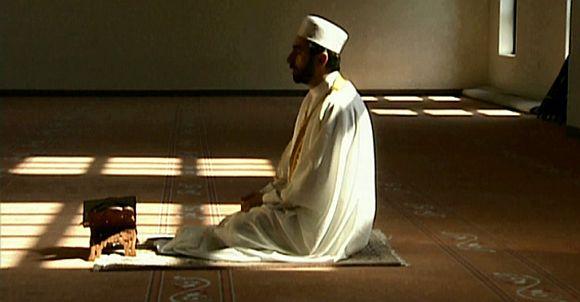
Wajahat Habibullah, chairperson, National Commission for Minorities, speaks to Kavita Chowdhury on reservation for Muslims, the RTI Act and the controversy over withdrawal of AFSPA in Kashmir.
You had recently visited Rajasthan. In Bharatpur district's Gopalgarh village, some members of the minority community, Mev Muslims, were killed and the state administration was accused of mishandling the matter. What is your view?
A communal riot is an unpardonable crime. The state government has taken action -- the district magistrate and the Superintendent of Police have been suspended. District magistrate Krishna Kunal met me in Jaipur. I told him as head of the administration, he had failed, and that he must face the consequences. The Gopalgarh police station staff has also been transferred.
I also met senior retired IPS officers P A Rosha, Bawa and Singhal, who had petitioned Prime Minister Manmohan Singh on the responsibilities of the police during communal incidents. If properly handled, a communal riot should not last more than a few hours.
Twelve people had died in the clashes -- all Mev Muslims. This shows they were the targets. Commission members Syeda Imam and K N Daruwalla had visited the spot, inquired into the incident and submitted a report. They held the district magistrate and police officers responsible for the violence. Based on this report, I visited Jaipur and met the chief minister.
Click on NEXT too go further...
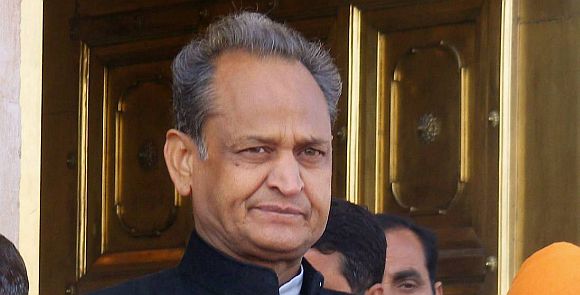
What was the outcome of your meeting with Rajasthan Chief Minister Ashok Gehlot?
The chief minister, along with the state home minister, the chief secretary, the home secretary and the minority welfare department secretary, met me. I also met a few Mev Muslims and Gujjars. The locals felt discriminated against by the government, though many apprehensions were unfounded -- the government didn't have any policy against minorities.
What the locals need are interventions such as education and development. I advised the state government to take steps to reconcile the communities and ensure development. Initiatives such as the Mewat Development Board need to be revived.
After examining the relief and rehabilitation measures, I felt the compensation was not adequate. I have suggested they follow the guidelines of the draft communal violence prevention Bill. I also suggested the police officials who had been transferred from the Gopalgarh police station be transferred from the district.
Click on NEXT to go further...
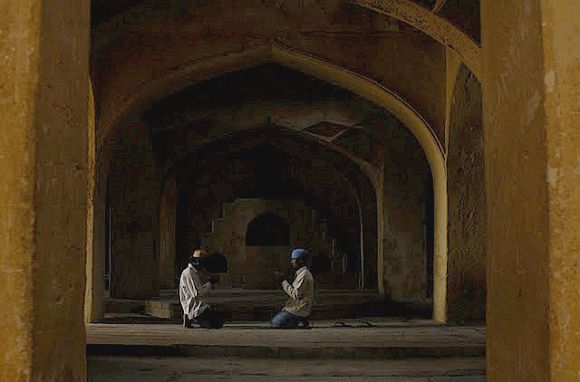
Do you think Gehlot should step down?
It's a political decision. But I don't think he should step down. The chief minister has a good understanding of the situation.
The commission had recently submitted its findings on the Mecca Masjid blasts in Hyderabad. According to these, several Muslim youth were wrongly accused, and they were subsequently acquitted.
We have recommended compensation and rehabilitation for the victims, besides issuing character certificates to these young men. Having spent three to five months in jail, these men are now finding it difficult to secure jobs. I have also recommended action against the errant police officers. In the Malegaon blasts case, too, the commission found two youth had been in jail on mere suspicion. We took this matter to the government, and now they are out on bail.
Do you think there is a common perception that the police and the administration are involved in minority bashing?
This is what we have been trying to tell the government: Without any evidence, terming people from minority communities as 'masterminds' is shaking the confidence of the youth from minority communities. The home ministry has been supportive of this and therefore, after the recent Mumbai and Delhi blasts, it refrained from mentioning any name.
Click on NEXT to go further....
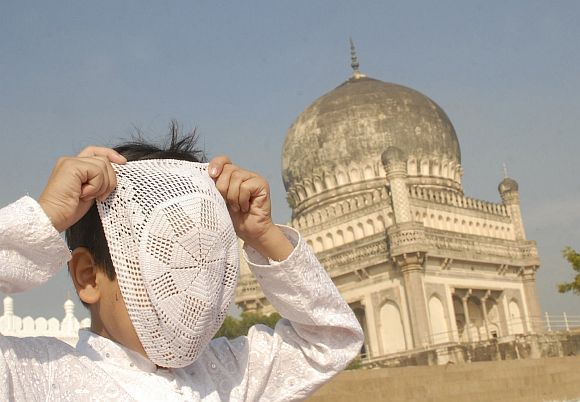
Recently, there has been a lot of talk on 'minority reservation'. Minority affairs minister Salman Khurshid has spoken of carving out a sub-quota within the other backward classes (OBC) category. Uttar Pradesh Chief Minister Mayawati is also talking about a minority quota. What is your view on this?
I have my reservations against reservations. Is reservation really an effective remedy for social imbalances resulting from historical injustices? Is reservation the way out? Or, is affirmative action a better option?
Scheduled Castes and Scheduled Tribes have gained from reservation, but these are increasingly becoming small groups enjoying the benefits. If Muslim reservation is accepted as a principle, it can't be for all Muslims.
The Muslim society is no different from any other society. Just as there are backward classes among Hindus, there are backward classes among Muslims. Currently, Muslim OBCs are recognised among the existing OBC classes. The problem is there are many backward classes among Muslims that have not been recognised and listed. This needs to be sorted.
Click on NEXT to go further...
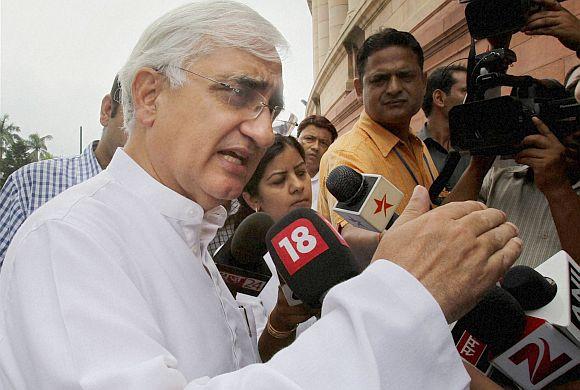
But Salman Khurshid is talking about creating a specific quota of six to seven per cent within the 27 per cent quota for Muslim OBCs.
I am talking of retaining the same structure, but spreading it among Muslims. What we need is more comprehensive listing of Muslim OBCs. If you have agreed to reservation, backward classes, irrespective of religion, should qualify.
You were the country's first chief information commissioner and have closely dealt with the Right to Information (RTI) Act. The government has, of late, been talking of misuse of the Act and a need to introduce the necessary restrictions, maybe amendments.
The RTI is an effective tool. If the government is to actually implement it fully, it has nothing to fear. There are adequate safeguards in Section 4 of the Act.
If the government is to put information as mandated under the RTI Act on its own, there would be no problem. All players -- the government, public information officers (PIOs) and citizens -- have to exercise their rights responsibly. All information in files should be out in the public domain. The Act requires that all routine matters be made available online. But that is not happening.
There are complaints of overburdening PIOs with RTI queries. If the information was made available online, PIOs and senior officials would only scrutinise matters in which judging an issue of public interest is required, and check if the information qualifies for exemption.
Click on NEXT to go further...

You have been vocal on issues pertaining to Jammu and Kashmir. What is your assessment of the present condition in the valley?
There is peace, but it is volatile. In 1989, we saw the best tourist season in Kashmir, but soon there was an outbreak of insurgency. So, the situation should be properly handled, since currently, the youth there are disgruntled. The state's political leadership must be accessible to the people.
Chief minister Omar Abdullah has called for withdrawal of the AFSPA. What is your opinion?
It's a hypocritical call. He should first withdraw the Public Safety Act (PSA), which is as bad as the Terrorist and Disruptive Activities (Prevention) Act and the Prevention of Terrorism Act. The PSA has to go. It affects civilian lives directly, while the AFSPA strengthens the Army's powers.
But Abdullah has already proposed amendments to the PSA.
These are merely illusory amendments. The internal insurgency is over; the insurgency is now at the borders.
So, do you feel it's a controversy that has been generated?
I was posted there during the worst years of militancy. Now, it is far better. Unfortunately, it seems the situation has been politicised.
Click on NEXT to see another feature...